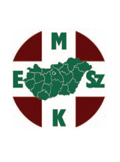The eLitMed.hu medical portal uses computer cookies for convenient operation. Detailed information can be found in the Cookie-policy.
Journal of Nursing Theory and Practice - 2014;27(06)
Content
[Socio-cultural environment as a factor influencing perception of overweight and obesity]
[The increase of incidence of overweight and obesity is a worldwide problem. Its therapy, as well as prevention, require holistic perception of the issue. The results demonstrate that these diseases cannot be perceived separately but from the perspective of health impact. The socio-economic area, the influences of ethnicity, cultural particularities and a lot of other factors must be considered. This article is focusing on the relation between the socio-cultural environment and perception of overweight and obesity as factors which can be directly reflected with preventive and therapeutic measures. The results show that ethnicity, cultural particularities, acculturation level, social status etc. are factors that influence the incidence of the relevant diseases to some degree. At present, there is lack of sufficient research studies which support the creation and implementation of culturally adequate interventions not only on the territory of the Czech Republic but worldwide. ]
[Comparative analysis of attitudes during stroke among risk-exposed gypsy and caucasian hungarian population]
[Aim of the study: The authors’s aim was to examine causasian and gypsy hungarians attitude towards illness and their knowledge about stroke. Further aim was to study whether the social and financial status and scholastic qualification have an impact on attitude during illness. Sample and methods: A self-made questionnaire was used for data collection. The authors asked 53 gypsy hungarians with a response rate of 85% (45 in total) and 50 causasian hungarians (response rate: 100%, 50 in total). Results: The gypsy persons have less knowledge about stroke than hungarians. The gypsys’ sociodemographic indicators are significantly worse than the other study group. Bad financial conditions and low employment rate seem to sustain the aversive attitude towards illness. Conclusions: If the non-desirable attitude is sustained by low qualification, employment rate and bad financial conditions, then the settlement of these areas could have an effect on the persons’ health. This study expands previous results, since it shows that the attitude towards illness is not only influenced by the knowledge about health and sickness, but also by the level of education. ]
[Complications and affecting factors of the healing after amputation]
[Aims of the study: To assess whether what complication following primary amputation and what are the chances of the proportion of patients healing who were treated with diabetic foot syndrome and/or lower extremity vascular disease at the Surgical Ward of the Hospital Siofok. Furthermore, to assess the factors that adversely affect the process of healing (addiction, other diseases, type of care after postoperative period and social conditions). Sample and methods: Patients were amputated by reason of diabetic foot syndrome and/or lower extremity vascular disease at the Surgical Ward of the Hospital Siofok between January of 2012 and September of 2013. (N=100) The method of data collection was analysis of the patient’s documentations. Results: 52% of the sample affected by the post-primary lower limb amputation complications. There was no significant correlation between the type of care after postoperative period and conduct of reamputatio. There was no significant correlation between the number of amputations experienced by the patients and the regular appearance of specialized controls. Conclusions: The proposals were formulated based on the following criteria: using for primary, secondary, and tertiary prevention.]
[Disabled children in the family]
[Aim of the study: The arrival of a disabled child at the family is not a happy event at all. The whole life of the family would change and they must face lots of difficulties and impediments. Parents of disabled children become underprivileged financially and socially. They must continuously deal with the structural problems of the social system and the probability of out casting process which are the objects of this study. Sample and methods: Present case study is about a girl suffering from Mucopalysaccharidosis disease and her family. This descriptive study is based on observations, data collecting and analyzing and interviews with the mother. Results: This case is a perfect example to show the structural problems of the social system, which can be latent or not having received the necessary emphasis as most of the time only the parents concerned can see them so they remain unsolved. At the same time it causes great permanent changes having considerable effects on the life of the family. Conclusions: Solutions to the above mentioned problem can be the specialization of the education, the inspection of the nursing districts’ boundaries, the prevention of burning out syndrome of the helpers with proper trainings or if necessary, where there would be only one possible solution, the modification of the legislation.]
1.
Clinical Neuroscience
[Headache registry in Szeged: Experiences regarding to migraine patients]2.
Clinical Neuroscience
[The new target population of stroke awareness campaign: Kindergarten students ]3.
Clinical Neuroscience
Is there any difference in mortality rates of atrial fibrillation detected before or after ischemic stroke?4.
Clinical Neuroscience
Factors influencing the level of stigma in Parkinson’s disease in western Turkey5.
Clinical Neuroscience
[The effects of demographic and clinical factors on the severity of poststroke aphasia]1.
2.
Clinical Oncology
[Pancreatic cancer: ESMO Clinical Practice Guideline for diagnosis, treatment and follow-up]3.
Clinical Oncology
[Pharmacovigilance landscape – Lessons from the past and opportunities for future]4.
5.






